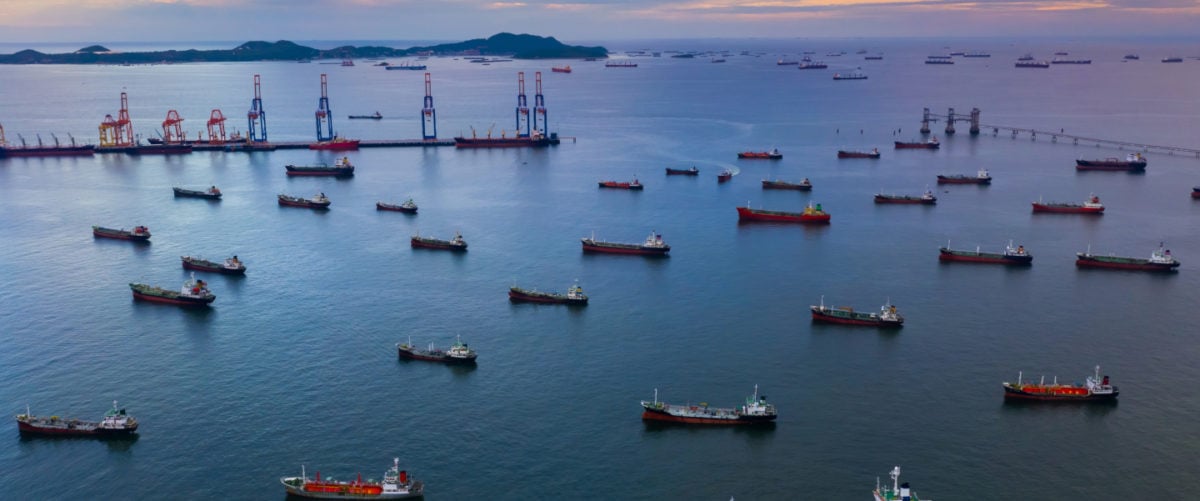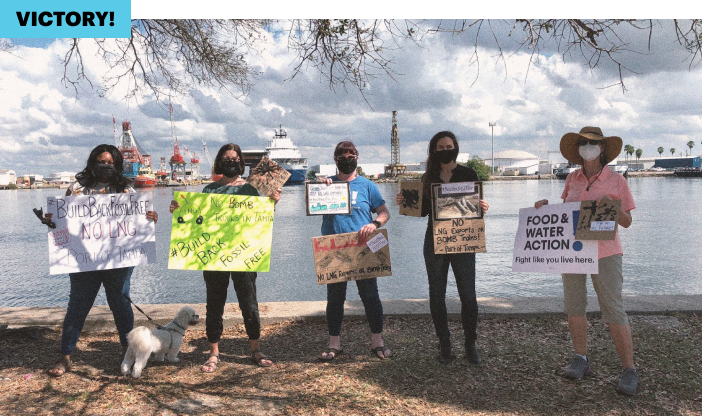We Defeated A Sneaky LNG Proposal, But It Won’t Be The Last We Need To Fight In Florida
Published Aug 17, 2021

We've fought off one of these dangerous proposals, but with a fossil fuel industry that's desperate to save its bum investments, we know more of these reckless, toxic proposals are coming!
Strom Inc. probably hoped we would never find out what they were trying to get approved. But while working on passing a local measure in front of the Tampa City Council to end fossil fuel use and transition to 100% renewables, imagine our surprise when we learned about a proposed Tampa fracked gas project that had been quietly moving forward for years.
Not only did Food & Water Watch bury that plan to transport dangerous bomb trains through Tampa and deal a blow to a proposed Liquefied Natural Gas (LNG) site nearby, on August 5th, Food & Water Watch succeeded in getting the Tampa City Council to pass the anti-fossil fuel resolution. This city measure calls on Congressmembers like Tampa Representative Kathy Castor to act boldly to transition us off fossil fuels. But we’re back to the grindstone this week to protect the people and environment from more sneaky fracked gas proposals like the one Strom Inc. tried to get past us all.
Sneaky Strom Inc. Aimed To Profit From Dangerous, Climate-Threatening Liquefied Natural Gas
Strom Inc. wanted to build a fracked gas liquefaction facility in Crystal River, FL, and transport the resulting LNG over 80 miles to Port Tampa Bay for international export. Strom has received export approval from the Department of Energy.
LNG is fracked gas that has been supercooled into a liquid form. Once liquefied, it is transported over long distances, including by ship for international export.
At a time when moving away from fossil fuels is critical for avoiding the worst climate impacts — and more officials may act soon in ways that threaten fossil fuel investments — the fossil fuel industry is doubling down on LNG while they can. Buildout of these facilities in Florida is part of a national push by the industry to build LNG export terminals in coastal communities. Two other LNG facilities are already in operation in the Sunshine State, in Jacksonville and Medley.
Fracking and LNG contribute to climate catastrophe, and the transport of LNG is extremely dangerous due to its flammability. Before LNG is loaded onto ships for international export, it’s transported on trucks or rail cars. These “LNG bomb” trucks and trains have enormous potential energy that rivals atomic bombs, and they’re transporting it on public highways and railways near dense communities, endangering the people who live and work there.
Strom Inc.’s proposal to liquefy fracked gas in Crystal River and transport the LNG over 80 miles to Port Tampa Bay by truck or train put millions of Tampa Bay residents at risk — and the government barely blinked an eye.
If The Government Isn’t Protecting Us From Dangerous LNG Plots, Who Is?
Despite the immense risks posed by Strom Inc.’s LNG proposal, the project has been met with very little government scrutiny. This also means there was no opportunity for public input in Tampa. Alarmed by this, Food & Water Watch worked to bring this dangerous proposal to light. We worked with Tampa Bay Times investigative reporters to dig up more information. That investigation uncovered Strom Inc. had been providing the Department of Energy false information about their project for years.
Food & Water Watch also planned actions to bring more public attention to the dangerous LNG proposal. On June 15th, we showed up to the Port Tampa Bay’s board meeting to express our disapproval of plans to export LNG from the port and urge the Board to reject the proposal. During the meeting, the Port’s primary counsel stated that the Port has no plans to export LNG with Strom Inc. Additionally, the Tampa Bay Times’ investigation uncovered Strom Inc. does not have the ability to build their liquefaction plant at the property they’ve been planning around. Since Strom does not have a location to liquefy gas or a port to export it from, this project is effectively dead. Food & Water Watch is working to formalize this victory by urging the Department of Energy to pull Strom’s permits for exporting LNG.

Strom Inc.’s LNG Facility Is Dead In The Water, But What About The Others?
While this LNG proposal in the Tampa Bay region appears to be dead, Florida’s existing LNG facilities continue to pose risks to communities in Miami-Dade and Jacksonville. Similar to Strom’s proposal, the Miami-Dade LNG facility faced very little scrutiny and government oversight, receiving only approvals from the Department of Energy. The Federal Energy Regulatory Commission (FERC) is charged with approving and regulating LNG facilities. However, the fossil fuel industry is finding ways to evade FERC oversight, leaving communities in the dark about these projects and without opportunity for input or objections.
To make matters worse, LNG is also being transported along Florida’s East Coast on the Florida East Coast Railway, putting communities along the train’s route at risk of dangerous LNG “bomb trains.” This LNG infrastructure buildout must be stopped.
As if the existing facilities aren’t bad enough, the fossil fuel industry continues to plan even more of them in Jacksonville and the Panhandle, and we expect more dangerous proposals. We need sweeping legislation from Congress to ban LNG facilities and export in Florida and everywhere. That’s why we’re launching a campaign opposing the buildout of new LNG infrastructure across Florida.
You can help. Send your member of Congress a message about banning LNG exports!
Enjoyed this article?
Sign up for updates.
TO TOP


